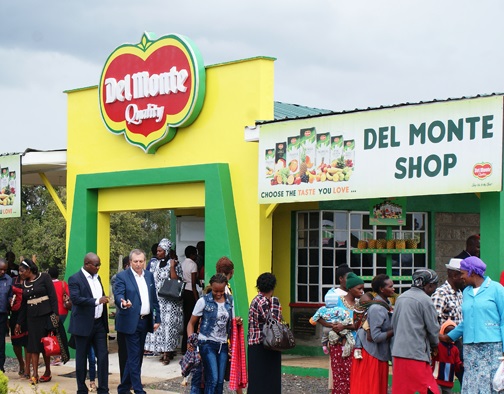In Kenya’s fruit export sector, where labor conditions are often contested, Del Monte Kenya stands out as a study in contrasts. Recent developments suggest that the company is making measurable progress in redefining worker welfare — not merely as a matter of compliance, but as a strategic imperative.
Del Monte Kenya maintains a standing Collective Bargaining Agreement (CBA) with the Kenya Plantation & Agricultural Workers’ Union. The current CBA (2023–2025) is under renegotiation, following the company’s consistent two-year rhythm of formal engagement.
This agreement covers key provisions, including working hours, protective gear, grievance mechanisms, wages, and disciplinary procedures. More importantly, it functions as a living document rather than a bureaucratic formality.
Workers report that salary delays are virtually non-existent, and that both management and the union take the terms seriously — signaling a culture of accountability and respect for institutional labor relations.
—
Championing Women’s Welfare
On women’s welfare, the company has shown tangible progress. Del Monte Kenya signed a commitment with the United Nations Foundation (UNF) to support a women’s health and empowerment program targeting 10,000 women. The initiative focuses on:
Menstrual health
Access to contraceptives
Reproductive health and cancers
Prevention of sexually transmitted diseases
Gender-based violence
Lactation stations are available throughout the workplace, and lactation breaks are formally provided to allow mothers time to breastfeed or express milk. Additionally, three months of fully paid maternity leave is a guaranteed benefit.
Such measures not only enhance women’s productivity but also affirm the company’s commitment to gender sensitivity and empowerment.
—
Health, Safety, and Dignified Living
Del Monte Kenya has also restructured its health, safety, and security frameworks. Six health clinics now operate across its farms, serving both employees and surrounding communities. Safety protocols have been strengthened through the provision of personal protective equipment and reinforced hygiene measures.
The company’s welfare initiatives extend well beyond the factory gates. It provides on-site housing and is upgrading its single-room units into spacious two- and three-bedroom homes surrounded by green gardens and communal spaces.
Del Monte’s commitment to dignified living is further reflected in investments in schools (from nursery to secondary), clinics, roads, and recreational areas that serve both employees and neighboring communities. Regular medical camps and outreach programs reinforce the company’s belief that employee welfare and community well-being are inseparable.
—
Institutionalizing Welfare and Human Rights
Institutionally, Del Monte Kenya has formalized grievance mechanisms and strengthened welfare management. New roles — including Welfare, Diversity, and Human Rights Managers — have been introduced to handle issues such as workplace discrimination, sexual harassment, gender-based violence, and overall employee welfare.
This professionalization of welfare oversight reflects a maturing corporate culture that treats human rights as an operational priority rather than a public relations add-on.
—
A Broader Lesson for Agribusiness
Del Monte Kenya’s journey offers broader lessons for agribusiness. It demonstrates that welfare is not a cost but an investment — one that pays dividends through loyalty, productivity, reduced attrition, and enhanced corporate reputation.
It also shows that formal structures such as CBAs, grievance mechanisms, and human rights assessments create accountability frameworks that can outlast management transitions or market pressures.
Moreover, it reinforces that gender sensitivity is not optional in agribusiness, where women make up a significant portion of the workforce and face unique social and health challenges. The company’s integration of community welfare — through infrastructure, schools, and clinics — underscores that strong businesses thrive best within strong communities.
For Kenya, where agribusiness remains a key driver of employment, exports, and rural development, Del Monte Kenya’s evolving model provides inspiration for what is possible when welfare is taken seriously.
If stakeholders — including government, unions, civil society, and corporate leaders — can sustain and elevate these standards, the ripple effects could be transformational: stronger livelihoods, deeper respect for human rights, and a more resilient agribusiness ecosystem for Kenya’s future.



